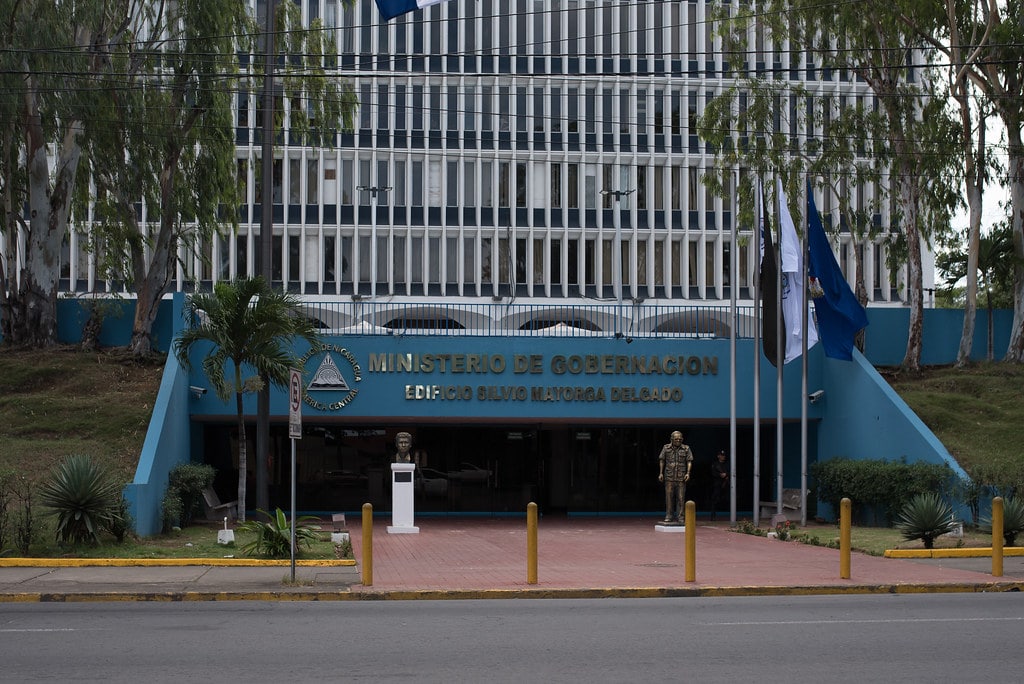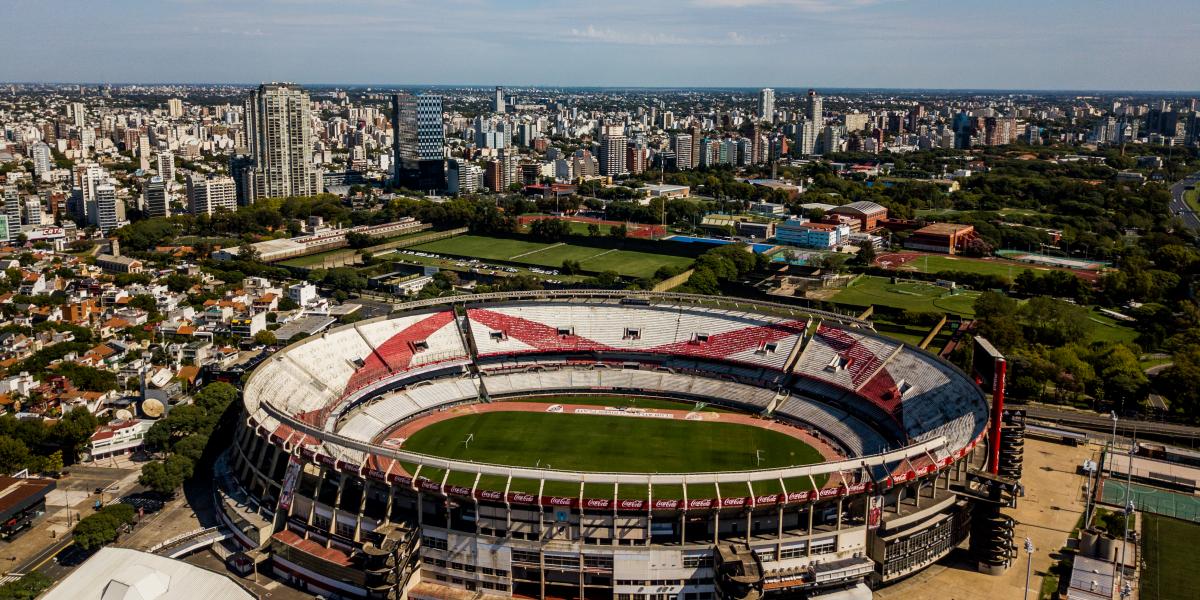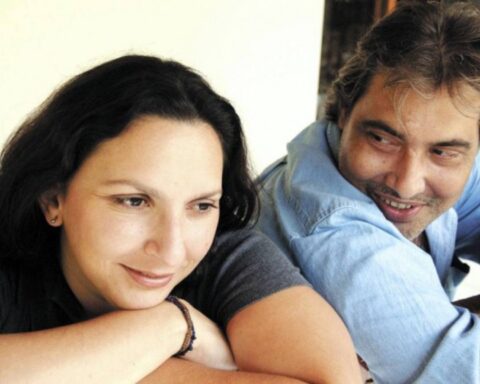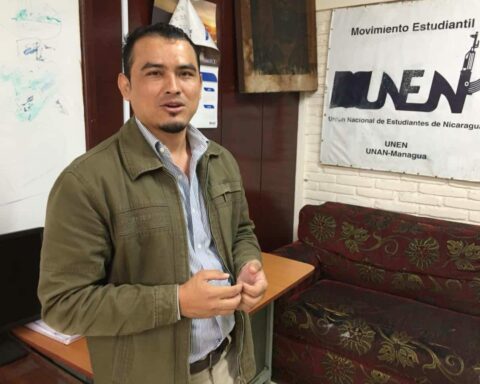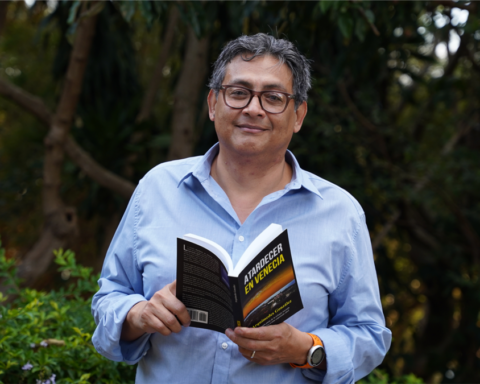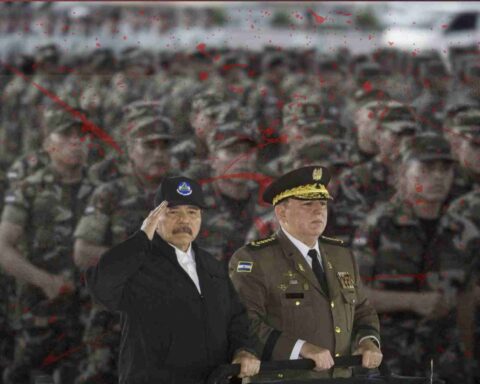The classification of Non-Profit Organizations (NPOs) between religious and civil -social, cultural and educational- violates freedom of association and consummates the policy -of repression and harassment- of the Daniel Ortega regime, by “vetoing certain issues” that can or cannot be developed by civil society organizations, affirm activists and experts in Nicaraguan law.
with the new General Law for the Regulation and Control of Non-Profit Organizations (OSFL), approved by the National Assembly on March 31 and legalizing confiscation from NGOs, The regime restricts the right for organizations to work in areas such as human rights, freedom of the press, association, the environment, and indigenous peoples, since none of these issues appears in the classification contemplated in article 11.
“The NPOs that are under the supervision of the Ministry of the Interior are classified as: religious and/or charitable – whose purpose is to exercise the right to religious freedom by being able to carry out activities of a charitable nature. And in civil and/or social, cultural and education, whose purpose is to develop activities of common interest and of a social nature”, reads the law.
“By not mentioning – the areas of DD. HH, environment, democracy– you can see that there is a vision to curtail work themes… and only develop more humanitarian, social or educational themes. That is to say, just cornering them towards some issues that for them do not represent a danger, a risk to their model and their politics”, points out the president of the confiscated Fundación del Río, Amaru Ruiz, and co-author of the report “The brutal demolition of freedom association in Nicaragua.
With the outbreak of the April Rebellion in 2018, the regime undertook a hunt against civil organizations that denounced human rights violations by the State and also maintained critical positions against its authoritarian drift. However, in the last three years, it has attacked NGOs focused on local, environmental, and financing development, stripping them of their legal personality and, in some cases, confiscating their assets.
New law against NGOs in Nicaragua is “unconstitutional”
Lawyer and notary public Martha Patricia Molina explains that, although Law 147 or the General Law on Non-Profit Legal Entities was obsolete and had multiple legal loopholes, this new law “does not improve the deficient regulatory framework that we already had” nor does it respond to the recommendation of the International Financial Action Task Force (FATF) to strengthen the laws so that NGOs are not used to finance terrorism.
It is “a law simply tailored to the Ortega-Murillo public administration, which has a single purpose, which is the annihilation of the NGOs that do not follow the repressive line that the regime has been presenting,” he values.
The law also conflicts with the Political Constitution, considers Molina, by violating article 49 that mandates that: “these organizations… will have a social function and may or may not have a partisan character, depending on their nature and purposes. However, the new Law establishes in its article 5 that: “all citizens have the right to voluntarily establish Non-Profit Organizations (NPOs)… without any discrimination, with religious and/or charitable, social, cultural and education”; thus curtailing the partisan character recognized in the Political Constitution of Nicaragua”, indicates the specialist.
“Instead of the State being the guarantor and protecting our constitutional rights, it is precisely the one that is hindering this new type of associations,” adds Molina.
They close the door to human rights organizations
Gonzalo Carrión went into exile after the Nicaraguan Center for Human Rights (Cenidh) was stripped of its legal status and its facilities confiscated by the Ortega regime in 2018. From Costa Rica, now as a member of the Nicaragua Never Again Human Rights Collective, he sees the new law as an instrument to “legalize all the accumulated abuse of power and serious violations of human rights.
“All that remains is to impose an order that says: any allusion to human rights and tyranny is strictly prohibited,” says Carrión.
For Ruiz, it is clear that if they allow NGOs working for the protection and promotion of human rights, they will question the policy of violation of rights that the regime has maintained. If they can’t control them –the agencies–, as they do with the Attorney General’s Office, which is a state entity, “they are going to try to ensure that no one works on these issues.”
In 2021, the Ortega regime canceled the legal personality of 60 organizations, of these, 22 associations worked to promote social, economic development and democracy, including six international organizations, and at least two NGOs focused on women’s rights. So far in 2022, the government attack has already wiped out more than 40 NGOs, including private universities whose assets were confiscated.
Molina points out that everything that is linked to issues related to human rights, the environment, democracy, and politics “opposes the new social, economic, and legal reality that we are experiencing. You always have to read a dictatorship between the lines because they themselves give you the guidelines they want to focus on,” she says.
The political background of the law is “to mutilate all the spaces that had been left loose, all possible spaces for thought and development”, but the most “dangerous and devastating” thing is what happens in the legal field because constitutional rights are violated , human, and international conventions on the same subject.
“We are being prevented from advancing the right to organize through these non-profit organizations; logically, human rights tell you that other rights are going to be negatively affected”, adds Molina.
The new classification of the regime against NGOs was not contemplated in the previous legislation, which defined them as civil and religious non-profit associations, foundations, federations and confederations. In this law, NGOs are restricted to specific fields. According to Ruiz, said decision also responds to “having discretionary and differentiated treatment between religious associations versus social and humanitarian associations”, taking into consideration that the regime has had special treatment with evangelical churches, which require a personality to constitute themselves as such. .

